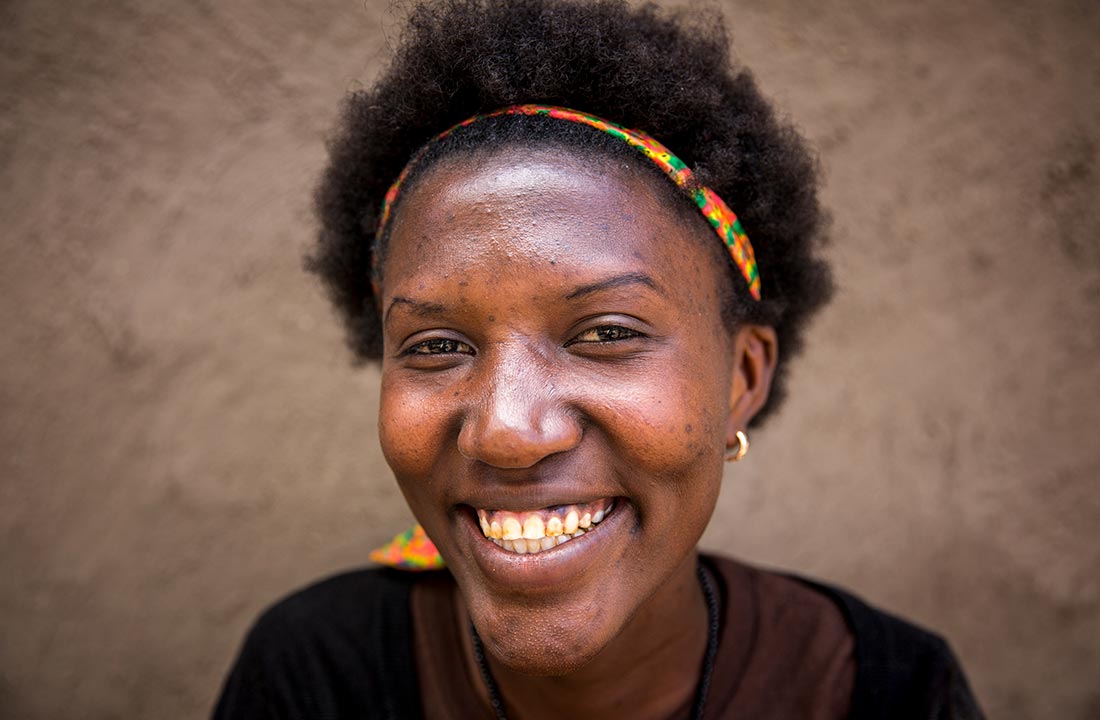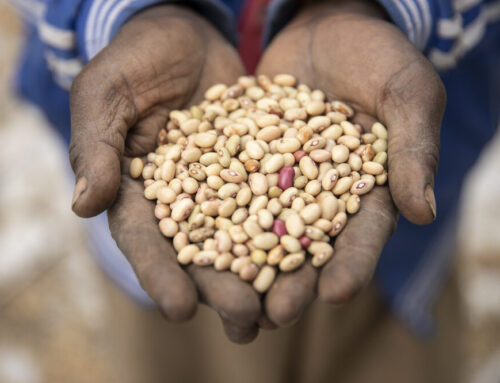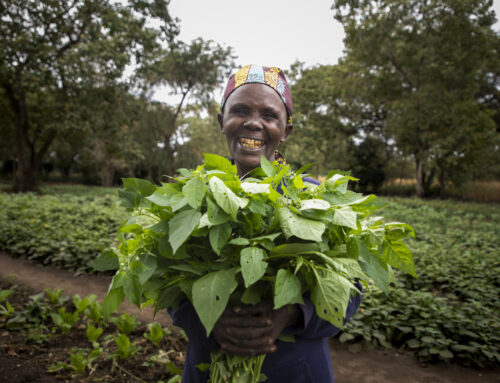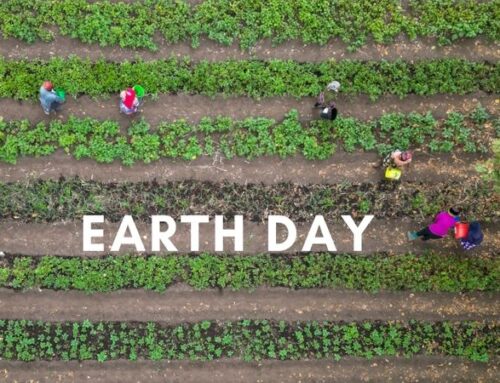She won’t be intimidated. She doesn’t even flinch as the room fills with men in leadership positions, years her senior. Some wearing traditional Maasai warrior attire, some in suits. They take their seat in front of us. They are not accustomed to learning from a young Tanzanian woman. Their melodic languages echo in the failing classroom where we gather. Violeth is ready and here to teach them about food security and access to clean water for their villages.
Violeth is a born fighter. Literally, she was born with both hands in a fist position. It wasn’t until she was a toddler that her fingers could move freely. But her thumbs did not. Skin inevitably grew over the thumbs trapping them against her palms. Over time, excess bone developed around her ankles and her feet began to turn under. Her shoulder blades began to protrude, creating a hump on her back. Caused by the weight of carrying water and the high levels of fluoride that weakened her bones. She cannot carry things on her head like other women. Yet nothing stops her. The fighter comes through in whatever she does. She is brilliant and her strength is enhanced by her softness. Violeth’s family was Save the Rain’s first recipients.
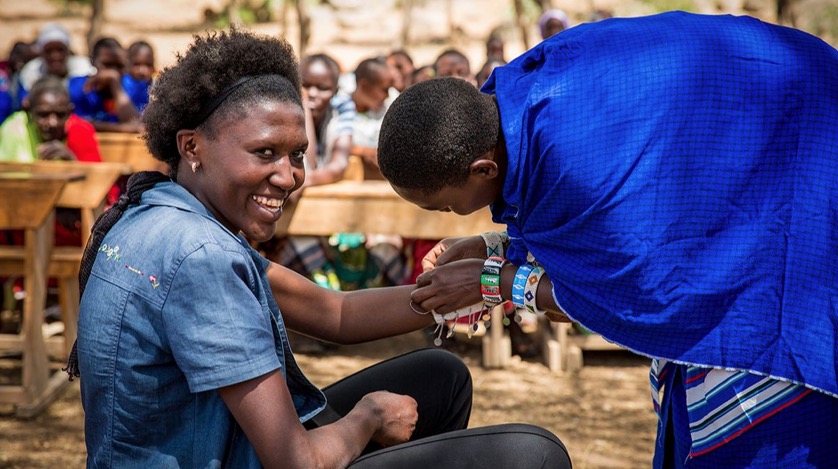 Violeth was ten when Save the Rain first started. When she reflects back on her life prior to having clean water at home, her brow furors with uneasiness. “I started fetching water when I was five. I am the oldest so often I would have to go alone. The river closest to our home was deep in the bush and down a steep hill. At times, there were men waiting there. Most of the men were drunk. I knew even then that they were dangerous. I often heard them beat and rape other children. Sometimes they would call out to me. I was so afraid that I would just run back home. But without the water, we could not survive, so inevitably I had to go back. During the rainy season, the path to the river was so slippery. Because my feet are not straight, it was hard to keep my balance while carrying a bucket of water. Sometimes I would fall and the water would spill out. I would have to go back and fetch the water I lost. I would get in trouble for being late because there was no water at home and my family would be waiting.”
Violeth was ten when Save the Rain first started. When she reflects back on her life prior to having clean water at home, her brow furors with uneasiness. “I started fetching water when I was five. I am the oldest so often I would have to go alone. The river closest to our home was deep in the bush and down a steep hill. At times, there were men waiting there. Most of the men were drunk. I knew even then that they were dangerous. I often heard them beat and rape other children. Sometimes they would call out to me. I was so afraid that I would just run back home. But without the water, we could not survive, so inevitably I had to go back. During the rainy season, the path to the river was so slippery. Because my feet are not straight, it was hard to keep my balance while carrying a bucket of water. Sometimes I would fall and the water would spill out. I would have to go back and fetch the water I lost. I would get in trouble for being late because there was no water at home and my family would be waiting.”
Violeth remembers how she felt when Save the Rain brought clean water to her home. “When I knew I would never have to fetch water again, I felt peace for the first time in my life. I was 10. I looked at my young sister who was 3 and realized that she would never know the fear that I knew. She would never have to fetch water for our family, ever.”
Violeth got surgery on her thumbs soon after her family got clean water. She went on to complete Form 6, the highest level of secondary school, and now works fulltime for Save the Rain.
Violeth’s experiences etched the rock that is her confidence. She stands before this room of men and teaches them how to end the suffering associated with the lack of clean water. Their judgment of her age and gender melts away with every brilliant idea she shares.
